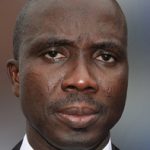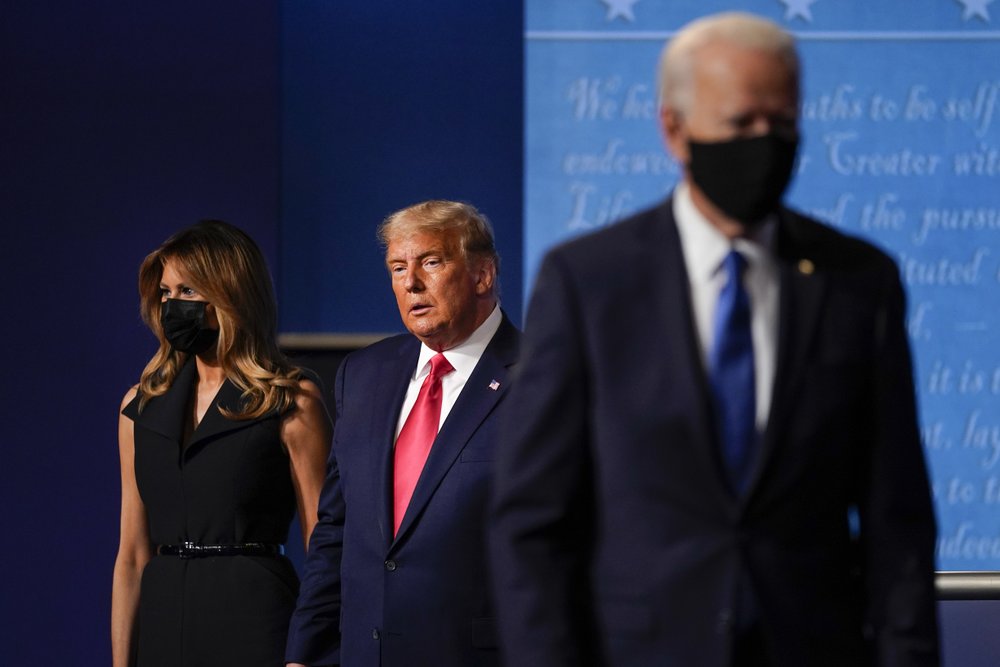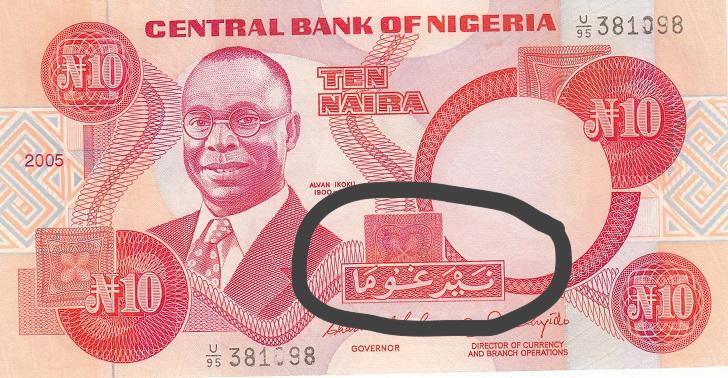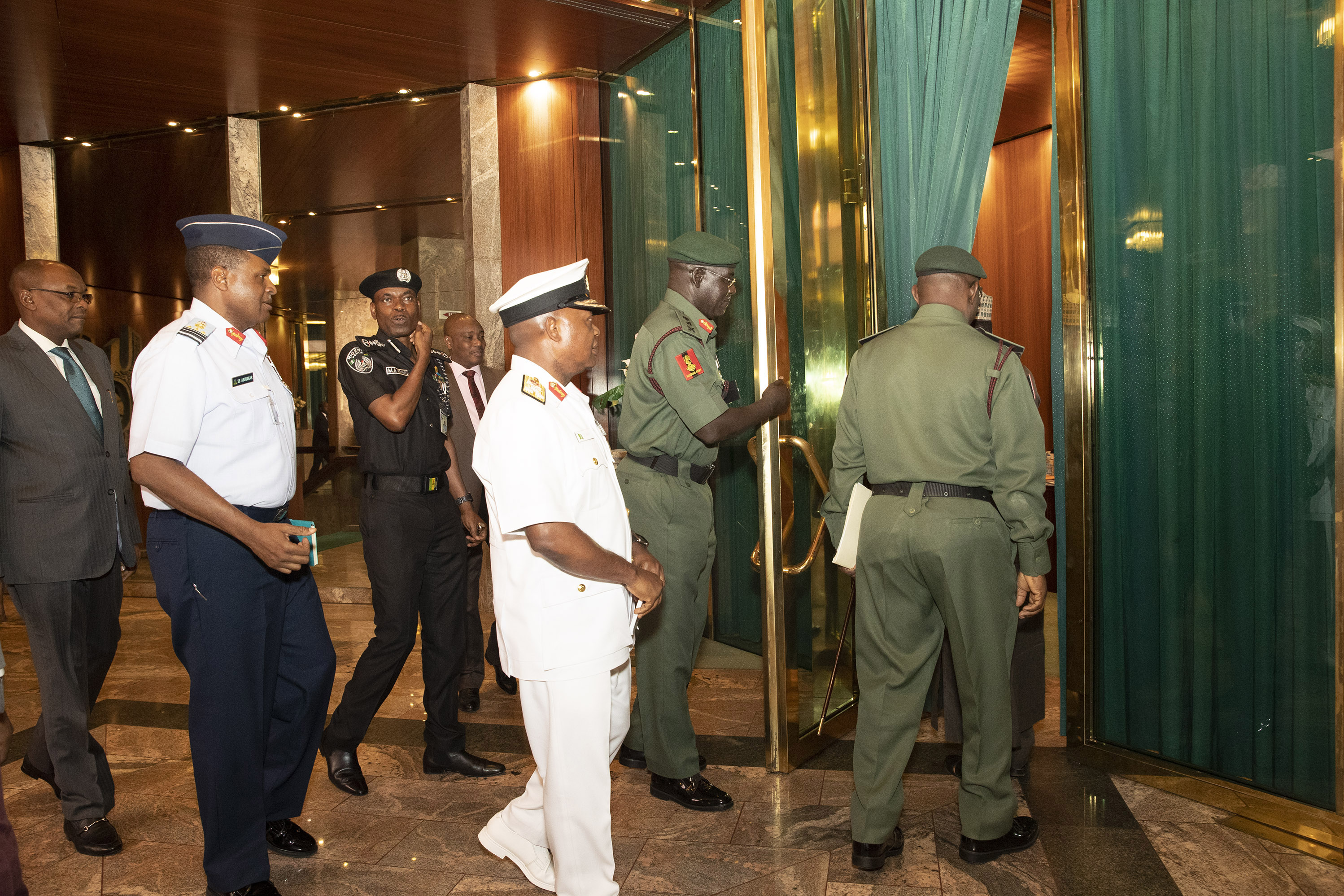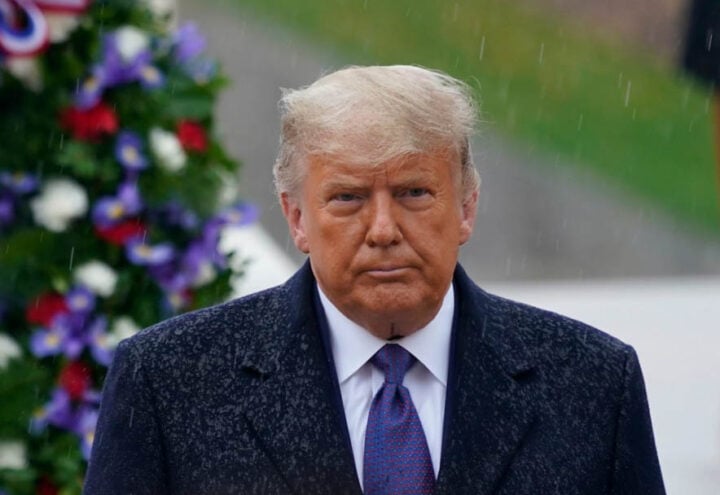It is surprising the state in which the various political parties in the country are. The parties are definitely in different stages of depreciation and are so weak that their ability to serve as veritable vehicles for birthing a strong democracy is very doubtful.
From the two major ones – All Progressives Congress (APC) and the Peoples Democratic Party (PDP), to the various smaller ones that become only active during election period, the type of vibrant engagement, exchange and mobilisation that are expected at this period of national development is obviously missing.
In a democracy, political parties are not only regarded as vehicle for driving the wheel of national progress as envisioned by certain group of people who seek to form government, they are also machines for producing ideas, platform for mobilising people around certain set of ideas necessary for national development as well as a forum for debate between what is, what used to be and what ought to be.
That is why political parties have manifesto and constitution. Different parties take position on current and future issues using their manifesto as the plank to prod their argument. It is also the reason why though the focus on national objective should be a constant factor, the approaches, ideas and beliefs by the various parties are expected to be different. The robust debate, rigorous interrogation of issues and the divergent solutions to problems not only help in forging national consensus, it also help to create viable alternatives.
Advertisement
And the competing alternatives create options for government, the people and society. In recent times, Nigeria has faced difficult times in the area of security, economy, infrastructure development, anti-corruption war, erosion of national values and declining national cohesion. All these have manifested in youth restiveness as evidenced by the #EndSARS protest, which later degenerated to criminal activities by some hoodlums.
Obviously, the youths who protested against police brutality, extortion and inefficiency also seek the implementation of a comprehensive reform of the police to make it better in terms of training, equipment and motivation. While all these were going on, it is sad that the two leading parties and the smaller other ones remain muted. At best, they have only joined the calls on government not to crackdown on the protesters or that the government should probe the shootings by the military men deployed to the Lekki Toll Gate.
While the protest and the destruction that followed were going on, the political parties were not heard or seen creating debate or discourse around the issues at play. They were not seen or heard trying to influence the reactions of government to the protesters or moderating the views of the protesters. The parties simply failed as platforms for contestation of ideas. And their failure to voice their opinions led to the chaos that we have continued to witness.
Advertisement
Compare the period of the #EndSARSProtest with the period of the gubernatorial elections in Edo and Ondo States and do a content analysis of the mass and online media. One will see how loud the parties were in one and how silent they were in the other. Their silence may have informed the slogan formulated by the protesters: Soro Soke, meaning Let your voice be heard, loud and clear.
With their silence and general inability to create alternate solutions, viable ideas and credible choices in terms of how to get the nation working again, how to cure the ills plaguing the nation and how to creatively engage the youths who now form more than 60 percent of the population, the APC, PDP and the rest of the parties have simply demonstrated that they are mere power grabbing machine. And with how bad the situation of our country is now, the citizens will be doing a disservice to themselves if they continue to tolerate political parties whose main aim is just to grab power in order to have access to the dwindling national resources.
The question continues to bother me. Why did the political parties in Nigeria get so tired this early and grow complacent? The PDP which is the older of the two mainstream parties was formed and registered in only in 1998. I remember, as the political editor of THISDAY Newspapers, how I covered various meetings that led to the formation of the party. From the meeting inside the office of a think-tank group headed by Prof. Jerry Gana in Victoria Island to the meeting of the G-17, later extended to G-34 and then the meeting in Ikoyi Hotel, Lagos and then the movement to Abuja, before the eventual announcement and registration of “the broad-based, all-inclusive” behemoth in 1998.
The formation of the rival All Peoples Party (APP) consisting of top politicians who refused to join the PDP, the young politicians who emerged during the Abacha transition programmes and those who broke out of the then emerging PDP. Top politicians from the South-West under the banner of the Afenifere fell under this latter group. The Afenifere again left APP to form the Alliance for Democracy (AD) under whose platform they contested the 1999 elections.
Advertisement
Today, only the PDP remains in its original form as a platform. The AD and APP have changed name and form several times before eventually merging with other parties in 2014 to form the All Progressives Congress (APC) which is now the ruling party. Thus, while PDP is 22 years old, the APC is just six years old in its present form.
If these two parties are human beings they will just be 22 and six years old respectively. One of them will be a young man while the other will be a young boy. Why are they showing this inertia, dementia and lethargy at this very young age? The Democratic Party in the US has remained in its present form since 1828 while the Republican Party which emerged from the ruins of the Whig Party and other smaller parties on March 20, 1854.
The India Congress Party was founded in 1885, that means it is 135 years old. The ruling party in South Africa, African National Congress (ANC) is 108 years old. The oldest party in Mexico, The Institutional Revolutionary Party (PRI), was founded in 1929 and is 81 years old. It governed the country for 71 of these years until it lost power in year 2000. Ghana’s Convention People’s Party (CPP) was formed in 1949, banned in 1966 and relaunched in 1996 and it is still in existence in the West African country.
I have gone to this length to demonstrate that the PDP and APC have peaked too early and getting to the nadir so easily and so soon. This assertion is justified with the way the rank of the two parties are now bedeviled with crisis. The PDP has crisis in Ogun, Osun, Ekiti, Lagos, Plateau, Kogi, Borno, Bauchi and Bayelsa States. That is one-quarter of the States.
Advertisement
The situation in the ruling party is worse. From its headquarters which is now controlled by a caretaker committee to the branch in Ogun, Ekiti, Edo, Rivers, Adamawa, Kwara, Zamfara and Anambra States, the party’s fiber is being torn apart. Also, though it is the ruling party, the dirty scheming among its leaders on who succeeds incumbent President Muhammadu Buhari is creating tension across the country. The crises in the two major parties are occasioned by lack of internal democracy, unbridled ambition, failure of the leadership to embrace equity or inclusivity and dictatorial tendencies of some of the leaders.
The result of all these distractions is that the parties have been enervated and drained of the needed energy to serve as alternate source of ideas for national development. With the present situation where so many things are going wrong, the parties are not leading the discourse for finding genuine solutions. The parties and their members are simply thinking of who gets what position in 2023 and which part of the country will the Presidency be zoned. Nobody is thinking about the post-Buhari Nigeria and the challenges that will confront us all. It is even worse in the six year old APC which is daily unfolding like a Special Purpose Vehicle (SPV) which was created just to chase away the PDP from power. Now, that that purpose has been achieved and reaffirmed, it does not look like the party is ready to hold on to continue in the service of Nigeria.
Advertisement
Unfortunately, as things are today, it is difficult, though not impossible for one of the other 48 smaller parties to overtake the big two. It is therefore important for the electorate to start taking interest in what happens within the parties. The party should be pressurized into initiating internal reforms that will make them ready to proffer solutions to national problems and engage in healthy debate on key issues essential to the survival of the country and the development of her ever growing population.
There is also the need for the youth who now form an influential segment of the nation’s demographics to brace up and really get involved in the creation of alternative platforms. Some of the dormant or struggling existing parties can be given muscle and repackaged to challenge the APC and PDP. The next general election should not be the business as usual scene. The APC and PDP need to be challenged and properly shaken out of the reverie they have slipped into.
Advertisement
Ordinarily, one would have thought it is too soon for any of these parties to die or suffer dementia. However, it will do this country a lot of good if in the next election, alternative platforms that are better organised and which comply with the global best practices in terms of how to run a political party and get a political party to prepare for and contribute to the emergence of good governance emerge to challenge APC and PDP. Such alternative platform(s) can compel the leading ones to become viable forces for the purpose of birthing good governance.
Olaniyonu writes from Abuja
Advertisement
Views expressed by contributors are strictly personal and not of TheCable.
